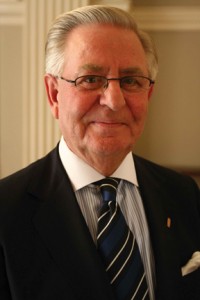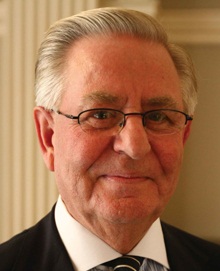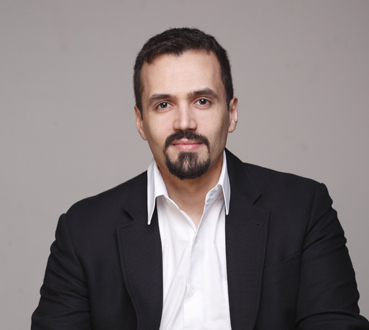
By Philip Whitfield
Why’s Morsi picking up tips from Jose Mourinho? They’re both hoping for a second chance: Mourinho to Chelsea, Morsi to the palace after Ramadan. Both need to turn things round: Mourinho to keep John Terry and Frank Lampard happy, Morsi to woo the crowd to his side.
On his left, Iran’s Mahmoud Ahmadinejad, as nimble as Nike, the goddess of victory. On his right, taciturn Saudi. After his election Morsi was treated to a lavish banquet in Jeddah designed to usher in a new era of economic cooperation and the start of a fresh political dialogue.
Nothing came of that. The Saudis are wary of the Muslim Brotherhood; cautious the Brothers’ fanaticism could upset their own applecart.
It’s tempting to regard each of the Arab Spring countries where revolutions hold sway as individual existences. They’re not. They are fuelled by two axiomatic injustices: The political iniquity inflicted on Palestinians and the breach of trust felt by the expanding Middle East citizenry.
Few intrepids fain enter Syria’s lethal savagery. Obama passed the ball to Secretary of State John Kerry to team with Russian Foreign Minister Sergei Lavrov. Cosy conspiratorial conclaves concealing conniving carnage.
The Arab side is missing a commanding commander in chief. Not in Egypt, Saudi or the Gulf. Turkey preens on the fence. Iraq sinks in squalor. North Africa’s head is in the sand.
With one exception the Gulf is snoozing this one out. Getting too big for its boots, Qatar’s ostentatious ambition is motivated by greed and therefore bound to fail. They’re playing a temerarious game plying energy to Europe, America and Japan. And a lifetime of torpid superannuation to favoured nationals.
The Arabs are captives of armed jihadist hotheads and magniloquent boastful fellow travellers. There’s never been a master plan to rescue the Palestinians or their own dispossessed. Avarice is their airy avocation; unbridled power their chosen weapon of mass dilapidation.
They and the West now have to confront the consequences of generations of skulduggery.
Into the mix arrives China: hosting Israel’s Benjamin Netanyahu and the Palestinians’ Mahmoud Abbas individually but only hours apart. Meeting on Wednesday Prime Minister Li Keqiang told Netanyahu Palestine is a core issue affecting the peace and stability of the Middle East.
A peaceful two-state solution reached through dialogue and negotiations is the only effective answer, he said.
China straddles a dichotomy. It has growing trade with Israel worth $8 billion a year. It relies on oil imports from Iran and Arab nations to meet its energy needs, half of which come from the Middle East, a dependency that is expected to deepen.
Predictably Israel unleashed the first barrage in the opening fusillade of the second phase of the Arab Awakening. The aerial bombardment of Assad’s weapons stores near Damascus deprives Hezbollah of armaments at a critical time.
But it also tests Iran’s mettle. Ahmadinejad’s maximum two terms end with elections on 14 June. Writing for AP Ali Akbar Dareini and Brian Murphy suggest a new president might embark on an international image makeover and open the door to less antagonistic relations.
With Iran preoccupied rigging elections, what of Saudi Arabia? No fear of free elections altering their status quo. But there is a groundswell of neo-revolution building among youth, women and closet jihadists.
According to Fehim Tastekin the Turkish author and politics scientist two factors determine the shade of Saudi Arabia’s reactions to the Arab uprisings and its regional policies: Its struggle against Iran to build up a Sunni shield against Shiite influence; rivalry with Qatar and Turkey, the two countries with which it cooperates to counter the Syria-Iran axis.
Tastekin says Saudi Arabia fears the prospect of the Muslim Brotherhood backed by Qatar and Turkey coming to power in Syria as it did in Egypt. He surmises Brotherhood rule in two key countries of the Middle East could undo the status quo in Jordan swiftly bringing the Brothers’ Islamic Action Front to power there.
It’s obvious who would be next up. A domino effect in the Gulf is the Saudis’ worst nightmare.
Where does Morsi stand with such a wealthy, experienced powerbroker whose tentacles inveigle the inner recesses of the White House and the palaces of Westminster and the Élycée?
We don’t know. Flitting round the world with his begging bowl, Morsi says hardly anything of substance.
If Egypt keeps siding with Iran and push comes to shove with Obama Saudi will blow cool on Morsi. Big oil pays Saudi’s bills.
Morsi knows beggars can’t be choosers. So far he’s been a lacklustre fundraiser. He’s tapped out if he can’t get his hands on five to 20 billion US dollars in quick time.
His problem? Playing in the international Premier League isn’t a five-a-side pick-up game where the locals can be shinned.
Morsi’s participation in a Saudi-Iran-Egypt trio trying to prevent all-out war over Syria is a nightmare for him. Saudi has relegated him to the sidelines. If he sticks close to Iran he’ll incur the wrath of the US.
Morsi’s in a hapless spot. At home the Salafis will drag him down if he takes his eye off the ball, forced to take an early shower reminiscing about what might have been if he hadn’t been offside most of the time.
The Muslim Brotherhood’s religious intolerance in a largely forbearing society defines his helotry, a slavish dependence on majoritarianism – the delusion of dictators in a fool’s paradise.
Philip Whitfield is a Cairo commentator




